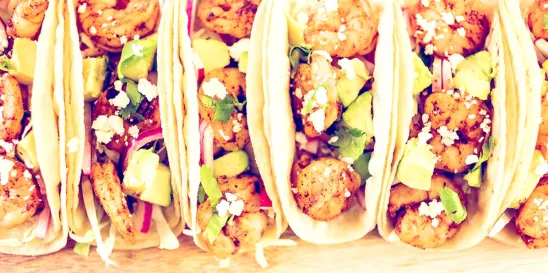Taco Bell has succeeded in its efforts to strip all registered third-party exclusive rights to use the word mark TACO TUESDAY in connection with restaurant services. Arguing that the term TACO TUESDAY is generic, the remaining two parties claiming trademark rights in the mark capitulated following an almost six-month-long campaign by the fast-food giant.
A restaurant called Taco John’s previously owned a trademark registration for TACO TUESDAY, with rights extending to every U.S. state except New Jersey. Earlier this year, Taco Bell filed a (colorful and humorous) petition for cancellation at the USPTO’s Trademark Trial and Appeal Board challenging Taco John’s trademark rights in the phrase TACO TUESDAY. Therein, Taco Bell argued that the phrase TACO TUESDAY has become widely used “to all who make, sell, eat, and celebrate tacos,” and therefore permitting only a single restaurant exclusive rights to use the phrase is “[n]ot cool” and “not right.” Taco Bell stated in its petition that TACO TUESDAY has become generic and should not be solely owned by Taco John’s because it does not identify, distinguish, or indicate the source of Taco John’s services from other taco shops. Taco Bell included survey evidence setting forth that 86% of consumers in the United States do not associate TACO TUESDAY with any particular company.
Meanwhile, another entity, The Gregory Hotel, claimed rights in the TACO TUESDAY trademark in New Jersey since 1979. Taco Bell filed a similar petition for cancellation of The Gregory Hotel’s concurrent trademark registration based on the same grounds, including survey evidence that concluded 77% of New Jersey consumers believed TACO TUESDAY is a common (or generic) name and not associated with any particular company.
Genericide occurs when a brand name for a product or service loses its association with a single source and acquires a generalized meaning referring to products or services of similar purpose. For example, many consumers use the word KLEENEX to refer to facial tissues generally instead of just the Kleenex brand. Other examples of marks that were once associated with a single company but are now commonly used by consumers to refer to an entire class of goods or services include XEROX, BAND-AID, ESCALATOR, and CELLOPHANE, among others. For a trademark to fall by the wayside of genericide, another user of the mark must challenge the owner’s rights to it, as Taco Bell did here; the USPTO will not pursue genericide claims on its own accord.
While Taco John’s CEO, Jim Creel, was initially determined to retain ownership and defend the company’s trademark rights in the TACO TUESDAY mark, the company eventually surrendered. "We've always prided ourselves on being the home of Taco Tuesday, but paying millions of dollars to lawyers to defend our mark just doesn't feel like the right thing to do," said Creel. Instead, Taco John’s will be donating $40,000 to the non-profit organization Children of Restaurant Employees (CORE). Taco Bell has matched Taco John’s donation to CORE, and on Sept. 12, 2023, opened a $5 million tab on DoorDash for taco lovers to get free tacos. Gregory Gregory, co-owner of The Gregory Hotel, commented “Now that we’ve relinquished the trademark, everybody can build their own traditions,” in regard to forfeiting its rights in the mark.
The threat of genericide is the reason trademark owners are urged to be vigilant about enforcing their rights against potential infringers and proceed with caution when marketing their brand. Such efforts have become increasingly difficult in the digital age, when catchphrases and trendy branding spread like wildfire, but trademark owners must remain firm on protecting their valuable trademarks to avoid loss of rights.
Sajani Patel contributed to this article.




 />i
/>i

